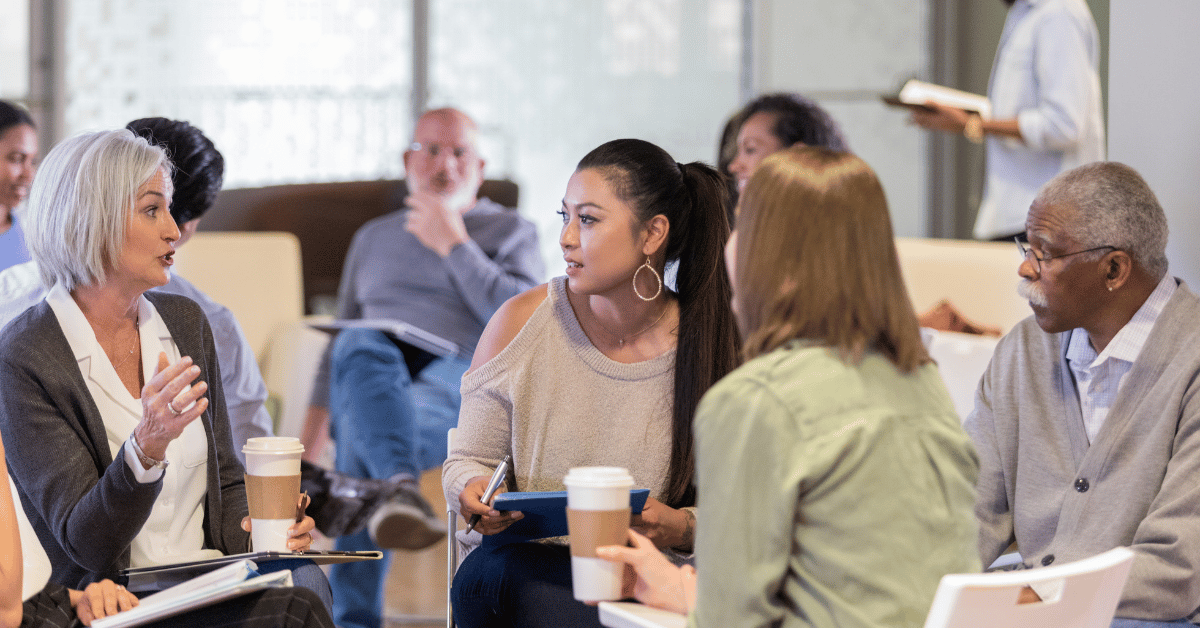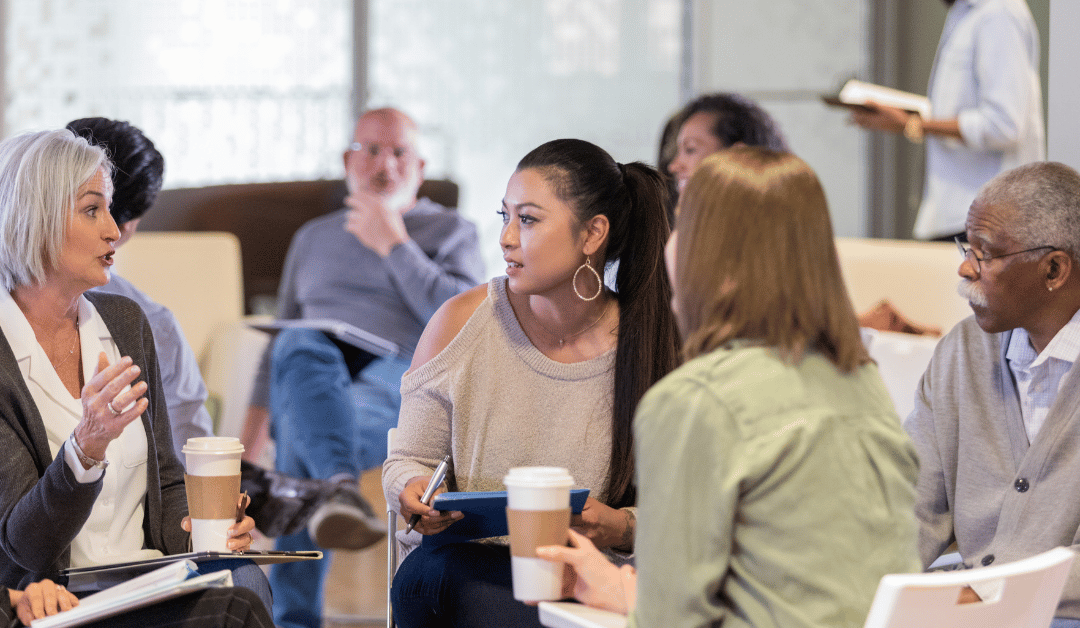I talk a lot about the fact that family members can have a positive influence on their loved one’s substance use. They don’t have control, but they do have influence. But there’s a catch:
Getting your own support is key to every single way a family member can have a positive influence on their loved one’s use. None of those other ways will work without it. Not to mention, effective support is absolutely essential for family members to heal.
The reality is you cannot possibly effectively support your loved one if you are not getting effective support yourself, because effective support is the key to your own healing.
There are a dozen reasons effective support is THE most important thing you need in order to heal yourself and improve your loved one’s chances of recovery. So I want to go through those one by one:
First, without effective support, family members develop unhealthy codependent coping mechanisms in an effort to cope with the fear and mitigate the pain of the situation. They are an understandable reaction to this situation, even though they are not productive.
The fear is understandable, and the pain is very real and may be overwhelming without some kind of support. The unproductive behaviors actually support family members in the face of the fear and the pain in the short term, but they don’t fix the heart of the problem.
If family members wish to address the heart of the problem, they need a kind of effective support that will both support them in the long term in the face of the fear and the pain, and help them address the heart of the problem.
Second, the addicted person is not likely to respond lovingly to family members’ efforts to change. And because addiction can also easily divide other family members, it is quite possible that even other family members will not respond positively to your efforts to change the way you respond to your loved one’s use.
Sadly, other family members are not likely to provide the kind of support you need to change. You need another source of effective support if you’re going to be able to change in the face of this resistance.
Third, when family members stop covering up the problems their loved one’s substance use creates, unfortunately, they ultimately have to face the pain of those consequences: the embarrassment, the financial difficulties, the loss of jobs, the separations or even divorces, and tragically, sometimes even the death of their loved one.
In other words, they have to walk through the grief they may have been using their ineffective codependent coping mechanisms to avoid.
Effective support is essential for family members to have the courage to walk through these problems, to fully grieve, and remain emotionally and spiritually whole on the other side, even though the situation is heartbreaking.
Fourth, one of the things that is essential to healing from our own codependent coping behaviors is to feel our feelings and, again, ultimately grieve a loved one’s substance use and the problems it creates.
Family members need people who are safe to feel these feelings with. Family members need to learn to be vulnerable again. And effective support is essential to this process.
An effective support person can also help family members identify feelings they struggle to name. This in turn helps family members better identify their needs and determine if boundaries need to be set and what those boundaries should look like.
Fifth: Following number four, an effective support person can also help family members determine how and when to express their feelings with their loved one. They can help family members work through the feelings and then move beyond the pain so family members do not stay stuck in unproductive coping behaviors..
Sixth, effective support is even more necessary if there has been physical or sexual abuse from your loved one. It is not unheard of for the loved one or even other family members to find any possible exposure of that abuse so threatening that they turn the victim of that abuse into a scapegoat, denying or minimizing experiences, or placing the blame for the abuse on the victim.
Seventh, change takes time. Recovery from substance abuse takes time. And family healing takes time. And you will never do all these things perfectly. Effective support is necessary to have the patience, compassion, realistic expectations, and continued energy to make the changes that will truly make a difference over the long term.
Eighth, just as addiction often comes with other co-occurring emotional disorders, it is not uncommon for both loved ones and family members to have their own emotional disorders beyond family addiction that impact the dynamic of addiction in the family.
Effective support is essential to addressing these other factors. These factors may also require a professional specific to the disorder.
Ninth, living with addiction slowly undermines our ability to trust ourselves. We need support to rebuild this faculty.
Tenth, fear and anger will take over and completely replace any love you might have felt if there is no effective support. Effective support will help you keep your heart and your humanity intact.
Eleventh, One way to have a positive influence is to allow your loved one to face reasonable and compassionate consequences for their use. But this is difficult to do and painful to watch them go through. You need effective support if you’re going to be able to do it anyway.
And twelfth, accusations of others who don’t have a good understanding addiction, and who may be guided by the scores of cultural myths out there, can also unfairly make you feel guilty for your feelings and / or your decisions regarding the substance use. You need effective support in order to be able to stand your ground in the face of this.
In sum, without effective support, the work of supporting your loved one in a way that actually improves their chances of recovery will be too difficult. Healing yourself while having the compassion that is so important to positively influencing your loved one is utterly impossible without it.
The shame and the isolation associated with addiction affect family members as profoundly as they affect the addicted person. And making changes that will improve your life and positively influence your loved one is not easy. Your chances of being able to do this in isolation are slim.
This is why you don’t need just any support – you need effective support. You will notice that I use the word effective pretty much every time I mention support. Lots of people will think they’re genuinely offering support when what they’re actually doing is far from it.
So we need to know exactly what effective support is. So here are four elements of effective support:
One: It comes from someone who does not judge, and who understands the immense challenges of a loved one’s substance use
Two: It comes from someone who understands your experience, either because they have their
own experience with addiction, or because they have learned about addiction, or because they have professional training around the issue.
Someone who has no understanding can certainly offer compassion, and that can be helpful, but they probably cannot offer the kind of support that will assist you in effectively changing the way you respond to your loved one’s substance use. Compassion is somewhat helpful, but it will not get you where you need to go.
Three: It comes from someone who advocates for your own healing, not just your addicted loved one’s recovery.
Sadly, this is an area where a lot of family support services out there fall short. For example, many treatment programs do not offer any meaningful family recovery services, and of those that do, many of those programs focus solely on actions that support your loved one’s recovery, and ignore the family members’ need for healing themselves.
This means that family members cannot assume that, if their loved one seeks treatment, the treatment center will be an adequate source of support for them, too. Very few treatment centers provide any family support.
Four: When it comes to the challenging choices faced by family members, an effective support person does not tell you what to do. So for example, they won’t tell you to kick them out or to let them move in, to give or not to give them money, to pay or not pay for treatment, to stay in contact or sever contact.
They simply support you in arriving at the decision that feels the best for you and a decision that you most feel you can live with.
Now, there is one caveat to not telling family members what to do: an effective source of support will tell you that you need to take action to protect yourself if you are being subjected to violence.
As the source of support you have in front of you right now, I am going to tell you, if your loved one is using violence or the threat of violence to keep you from responding to or interfering with their addiction, you need to take every action possible to secure your safety.
Pay attention to the cues that they are about to become violent and back off if you see them. Stash money away, hide a set of car keys, find an alternate source of shelter with a family member, friend, or domestic abuse shelter so that you can leave if you need to. Have these things ready ahead of time so if the threat of violence arises, you are fully ready to take care of yourself.
Nothing else I tell you here will have any effect if you are trapped in a violent situation. You must take action to ensure your safety first.
I hope you are not in that situation, but if you are, please take action right away.
OK, so the next question is, where can you find this kind of effective support? If you have friends and/or family members who meet these criteria, that is a beautiful thing.
Many family members don’t however. Even if you do, you might find a wider support network to be helpful.
So, in the next episode, I’m going to discuss several places you can find that kind of support and the pros and cons of each source of support.
But before I close out this episode, I invite you to share in the comments, to what extent are you finding effective support in the people you may have already turned to? In what ways are the sources of support you’ve turned not as effective as they could be?
Will it be difficult for you to turn elsewhere if you’re not finding the kind of support you truly need in family or friends? Just a note here: It’s perhaps best not to name names in the comments.


0 Comments